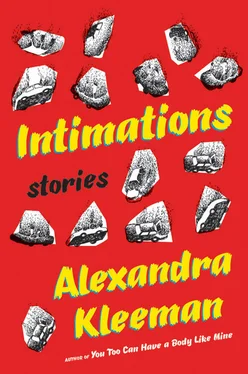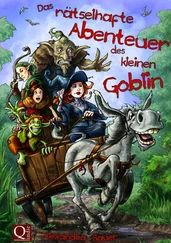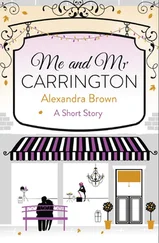I was trying to think of all the different things I liked about doors. Their size, their heft, the sense that they were made for bodies to pass through them freely. The way they put holes in spaces in which you would otherwise be trapped forever, looking for some way in or out. All of the best moments in my life had been preceded by entering or exiting a door, or maybe just having a door waiting there in the background, offering the possibility of escape. They were the only things I could think of that were truly reversible: no clear beginning or ending, passing endlessly through a series of midpoints and temporary stops. They were beautiful in this revocability, flexible and soft.
All except this door, which seemed to be unidirectional.
From the outer side it had looked like any other, but here I was running my hands over it and looking for the seam, clawing at it, pounding my hands against this faint echo of a door that lacked all the features I had heretofore prized among its kind. The doorknob was fixed in place, and when I ran my fingers over the line, it felt of paint, thick and dark, on a smooth surface. If this door offered hope, it was only in trompe l’oeil form, a thin veneer of it laid planlessly. I turned to look for another way out.
Behind me lay the insides of a small house: coffee table, sofa, then a dining table and chairs. What looked like a kitchen to the right, then a long, narrow hallway that probably ended in a bedroom or bathroom. The apartment was small, and it seemed to funnel off into a point too small for anyone to step into, or out from. A man was seated on the sofa. He watched me, and he tilted his head.
What are you looking for? he said.
What’s wrong with this door? I said.
That’s a really strange question, he responded.
Something about his statement really irritated me. Yes, I was able to see how it could be considered a strange question. But in this situation, this strange situation, it seemed to be the only reasonable question to have. The fact that he wasn’t asking the question himself made him the strangest element here. At least by the standards that existed outside this house.
Look, sorry, where are my manners? he said. Have a seat, would you like anything?
I had just walked into his house, a complete stranger, and began clawing at the walls, tearing at the empty form of the door painted on it. I wanted him to feel as I did, trapped and hungry for answers. He should have been demanding information from me, demanding to know why I was here and who I was.
Don’t you want to know how I got in here? I asked.
He laughed a little. Okay, he replied, I’ll bite. How did you get in here?
I’m not sure, I said.
Now that we’ve settled that, he said tolerantly, do you or do you not want something to eat? A beverage? He stood up and headed over to the dining table.
I used to have a pet mouse that was actually just a normal mouse that had been living in our kitchen, someplace behind the oven. My mother caught it in a Havahart one weekend and I begged her to give it to me instead of crushing its head with a hammer and flushing it down the toilet, as she had threatened repeatedly to do. This mouse was cute, but it never got used to the fact that it now lived in a cage. It smelled bad in a feral way and wouldn’t learn to groom itself. You couldn’t play with it because it was wild, dirty, and fierce, but I used to like to press my face up to the clear plastic walls of its habitat and watch it digging furiously at the bounds, and when I did this I tried to make sure that my face showed a similarly desperate expression just so the mouse would know that it wasn’t crazy.
He was pouring a glass of wine and didn’t seem to be looking at me at all.
You have beautiful eyes, he said all of a sudden.
I hated compliments like that, compliments that carved out one particular part of your body and put it on a platter for viewing. It always took a while for me to reabsorb that body part afterward, to add it back to the whole. The best kind of compliment to give me was something vague, plausible. You’re all right. Or, Don’t worry, it gets better.
Eh, I replied.
He handed me the glass and began saying things to me. He described his feelings on organized religion and organized sports, on organizations in general, on bodily organs (the liver was his favorite and, he felt, often overlooked), and the economics of organic fruits and vegetables. I felt invaded at first, but as he talked, I experienced a sudden swell of something calmer, more complacent. This was a feeling that he talked into me; it sank in through the skin. It wasn’t anything in particular he had said, just the fact that he kept saying it, whether I responded or not. This ceaseless stream of talk might seem aggressive from some perspectives, something I couldn’t affect except through participation, but I felt it more like light illuminating a room, a harsh and inescapable substance that was ultimately harmless.
This feeling of lessening disturbance, coming from within myself, unexpected, was profoundly disturbing. As I sat still, growing less and less alarmed by the situation, I knew that I had to move fast, move as fast and as far as I could within this small, cramped house.
Do you have a bathroom here that I could use? I asked.
You don’t need to go to the bathroom, he said. He said it like it was a fact that he had read recently, in some news article. And it was true: nothing had changed for me physically since I entered this house. I had grown no thirstier or hungrier, though my mental parts felt increasingly in flux.
What I mean to say is, I have to go into the other room by myself, I said.
For what reason? he asked.
I couldn’t think of a good answer. I couldn’t tell him that I was going to look for a functional door or window that I could sneak out of without seeming ungrateful for his hospitality. I couldn’t think of a way to tell him that I wanted to get away without sounding crazy, like a person not in command of her own life choices. I couldn’t think of anything at all, really: it was so warm in here, so much warmer than it had been outside, and the air seemed a bit thicker and sweeter than usual, like watered-down honey.
I’m going to bake a cake? I said, testing this answer out.
Well, that sounds great, maybe we’ll have something to celebrate in the future, he said, winking in my general direction.
I left the room before I could figure out exactly what bothered me about his response. Was it the way it seemed to assume a future for the two of us? A future in which I would continue to be unable to leave this house? Was it the presumption that I was making a cake for him when, really, I had no idea why I was making a cake at all?
Now I was in the kitchen and I could at least rely on the task to keep me from thinking of those questions. I took cocoa, sugar, flour, salt, baking powder, vanilla extract, and butter from the various storage places of the kitchen. What was strange was that all of these things were present in the room, everything I needed, but nothing else. The fridge contained one stick of butter and four eggs, no more. The cabinets were empty except for the dry ingredients of my cake, exactly one cake’s worth. This information seemed to have a bearing on my situation, and I filed it away to think about it later.
Ever since I was young, I had maintained a special agreement with myself wherein I was permitted to avoid thinking about whatever I wished, at that moment, to avoid thinking about, provided that I think instead about another problem that I had wished to avoid thinking about in the past. In this way, I would never be shirking my responsibilities entirely, but I also would not have to deal with the most difficult of the possible problems at its most pressing time. At this moment, I decided that I would try thinking about the problem of reversibility and irreversibility in physical processes. Why was it true that one could stir sugar into a cup of tea, but not stir it back out? Why did living things age only in one direction, and so unfalteringly in that direction, without pauses or stops?
Читать дальше












